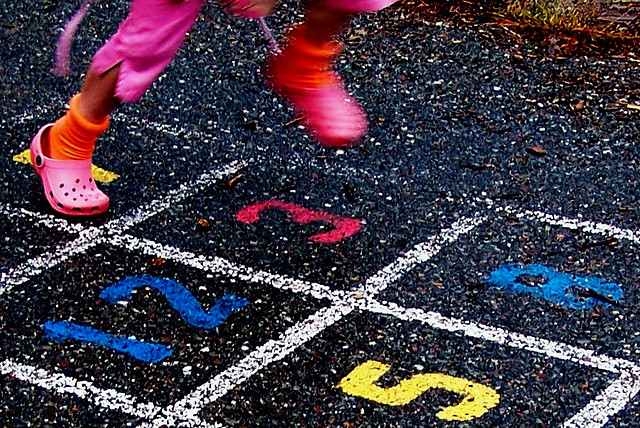“When you don’t cover up the world with words and labels, a sense of the miraculous returns to your life that was lost a long time ago when humanity, instead of using thought, became possessed by thought.” ~ Eckhart Tolle, A New Earth: Awakening to Your Life’s Purpose
I have a hangover that won’t quit since my recent trip to Baltimore, a family visit that collided with the quaking of a racial fault line.
Unlike Nepal, couldn’t we see this coming?
We live in frustrating times. Even though we are drenched in information we are insatiable—forever thirsting for answers.
We want to know. We look to politicos and pundits whose job it is to know. Increasingly, they fail us. The more we watch and listen, the more confused and conflicted we become.
I was six when I met my first “colored” friend on the granite stoop of my grandmother’s row house in downtown Baltimore. It was the briefest of encounters—the call to come in for supper, suspiciously premature.
Once inside, I detected none of the familiar aromas of Mimi’s cooking. Instead, she slipped me a section of Hershey bar and plopped me down in front of her favorite soap, “The Secret Storm”—my friend quickly forgotten as I sat mesmerized by the opening images of waves crashing against the rocks—in black and white.
It is too late to ask my grandmother about her trepidation surrounding black folks. Where did it begin? Did it spring from experience or legacy? How much of her wariness was passed along to my father and uncle, themselves insistent on taking individuals on face value, but given to slurs and harsh generalities about the black race?
Distraction wasn’t a new strategy for Mimi. She had a habit of saying “look at the kitty” to divert our short attention spans. There was never a real kitty, only a lifeless ceramic cat suspended, as if by magic, on the brick wall outside her door. My sister and I fell for it every time, looking around for a real kitty.
Hope has a longer shelf life when encased in the heart of a child.
I found myself looking for that sense of hope last week. It was hard to find in the reignited embers of smoldering outrage following Freddie Gray’s funeral, just blocks from Lennox Street, where Mimi used to live. I watched from the expensive seats—my sister’s leather sofa in predominantly white Carroll County—safe and far from the madding crowd.
As usual, the knee-jerky news media filled air time with unchecked rumors, leaks and blame-gaming, stoking resentment as old as the enslaved ancestors of that little girl I met for a fast game of hopscotch in 1962.
Denial has me looking for the kitty as an adult. I want to believe these riots are not just a replay of 1968. That somehow what is happening in my beloved Baltimore is just another push in the convulsive birth canal of societal change.
What is the gestation period for the unification and connectedness we desperately need?
Yes, change is painfully slow, sometimes to the point of regression. We know that from making personal, hard-fought changes in the face of resistance and withholding (including our own). But at this moment, it appears something has gone terribly wrong, as if hope is being strangled by a cord wrapped around its neck.
People of all parties, socio-economic stripes and skin tones share a common sense of disgust about the unraveling in Baltimore—disgust with the cops and with the angry teenagers bent on destroying their own disadvantaged neighborhoods, wiping out years of progress, hope and hard work. We fixated while suddenly passive police officers were hit with rocks and bottles, fire hoses slashed, and businesses—many of them owned by African Americans without insurance—were set ablaze.
Like with 9/11, or tornado coverage, it was hard to look away from this real life episode of The Wire.
Human beings aren’t well served by fear, and in this fear-mongering culture we become possessed by with thought. My brain morphed into one of those motorcycle-filled cages at the circus—thoughts careening from charitable to damning; as random as my old mantra when I was the mother of small children, married to a messy mechanic: why can’t I have any nice things?
It is natural, not racist, to feel disgust, I told myself.
And yet, my reaction was not free from a lurking, subterranean prejudice. This is how I know:
When the mayor and other officials, including President Obama, used the word “thugs” to label the rioters, it felt strangely gratifying, like eating something I’d been craving that would later give me acid reflux—a guilty pleasure that would mete out its own punishment.
Labels are seductive. They make us feel safer and less confused. But in the long term—and maybe the near—they aren’t good for us. Labels paint people with a single brush, rendering them less than human—The Other—quenching the ego’s thirst for a scapegoat.
Any time we fight for change, make an unpopular choice, veer from the norm, we risk falling victim to the single brush. In my privileged life I have been painted with stinking slurs (slut, bitch) to the seemingly harmless (feminist, single mom, divorced, laid off). All of these words are expedient—and reductive. Labels make us feel less and helpless. When caught in the birth canal of judgment and dualism, our full stories ache to be given life.
“A riot is the voice of the unheard.” ~ Martin Luther King, Jr.
Sticks and stones may break my bones but words can never harm me, our parents taught us to recite. It is a lie. Words are much more harmful than physical abuse, penetrating into the marrow—as tyrannical as bone cancer.
If those kids, the cops—and the concerned heroes of the community who built a moving buffer between them—could explain beyond the sound bites they are afforded, what would they say? What would we learn? Why don’t we listen?
Because the ego is gluttonous. It feeds on the empty calories of lazy assumption rather than commit to the rigorous exercise of embracing complexity, nuance and our shadow selves. It is easier to stand on the pedestal of conviction. I wonder when we will ever have that long-overdue, honest dialogue about race.
I wonder. What became of the girl I met on that stoop? She’s old enough now to be a grandmother. If so, is her grandson one of those “thugs”? Or a cop? Or a city councilman? How many times has she feared whites like my God-fearing grandmother must have feared blacks? And, come to think of it, why is “God-fearing” a label we were taught as children to aspire to?
Could it be that incessant thought, opinion, words, labels and gratuitous dialogue are the ceramic kitties on the wall that distract us from the real answers?
In these desperate hours of labor, only a shift in the tectonic plates of our national soul can deliver peace.
Out beyond ideas of wrongdoing and rightdoing,
there is a field. I’ll meet you there.
When the soul lies down in that grass,
the world is too full to talk about.
Ideas, language, even the phrase “each other” doesn’t make any sense.
~ Rumi
Relephant Read:
Baltimore, Ferguson, Vancouver: Do Not let this all be in Vain.
Author: Holly-Smith Berry
Editor: Emily Bartran
Photo: Pink Sherbet Photography







Read 0 comments and reply